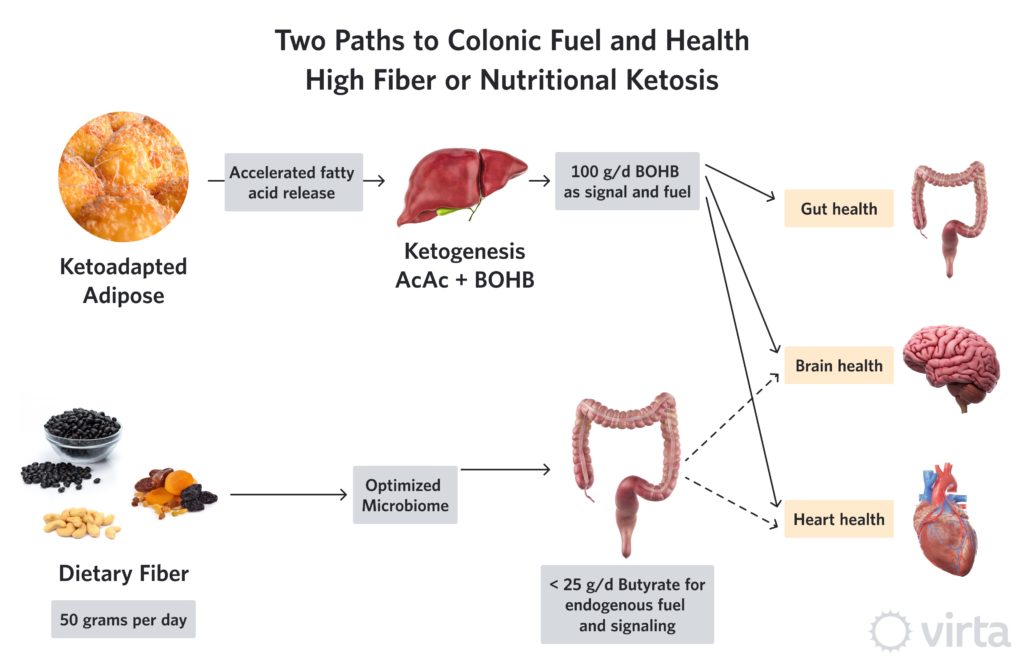Dr Norman Swan is a mainstream media health science communicator popular in Australia. He leans toward a Mediterranean diet for best human health and seems dubious about low carbohydrate ketogenic diets.
Two quotes from his commentary in this episode:
“An enormous study which might make you think twice about a low carb diet.”
The paper which is a systematic review style paper:
https://www.thelancet.com/journals/lancet/article/PIIS0140-6736(18)31809-9/fulltext
“There goes the keto diet!”
I won’t dig in to the scientific paper (yet). I hope someone like Dr. Zoe Harcombe or Professor Grant Schofield might have a go at that. But I’ll have a go at pointing out some highlights in the Health Report media report.
From the top:
-
“…we’ve always known that dietary fibre is protective against a number of diseases, but what we came up with really surprised us in terms of the extent to which dietary fibre is protective against so many important diseases.”(Prof. Mann).
** Dietary fibre in the large bowel, with the correct biome, will be broken down into short chain fatty acids, butyrate, which is anti-inflammatory. Hokey, dokey fair enough. The use of an ‘Appeal to tradition’ (argumentum ad antiquitatem) fallacy in the Professor’s opening comments alerts the reader to possible scientific mischief ahead. -
“This was an enormous amount of data, 135 million person-years from studies that have followed people through life, and randomised trials where they are being given fibre.”(Dr. Swan)
**I’d need to check, but the participants in the collected studies were probably from the general population eating the standard western diet. The benefits of fibre being extrapolated from a change to a poor diet. We know there is benefit to any change in the standard dietary recommendations. -
“Dietary fibre, if one had reasonable intakes, and we came up with 25 to 29 as being the minimum ideal intake, that’s grams per day, protected against the development of colorectal cancer, that was particularly striking, and in fact it seemed that the further you went beyond 30 grams the further was the protection against colorectal cancer, protective against diabetes, protective against cardiovascular disease and reduction overall in total mortality.” (Prof. Mann)
**25g to 29g (minimum) per day of fibre from wholefood sources such as fruit, nuts, grains, legumes, seeds and vegetables carries a lot of carbohydrates with it. Remaining in nutritional ketosis may not be possible? False. The Professor is advocating for a high carb diet based on the findings and interpretations of his research. -
The Rub. " Carbohydrates is where we get this fibre from, is your argument." (Dr. Swan)
“Absolutely. So, even if you were having good low carbs, you are not going to achieve those intakes.” False “So I think it should make people want to think about whether there really is benefits to these low carb diets.” (Prof. Mann).
**There we have it. Human health is fibre based, according to the 'authority’ (Prof. Mann, in this case), for any unwary listener. But his conclusion is based on a failure of truth. -
Red meat and colorectal cancer. “That is an incredibly important point that you make, and I think applies particularly of course to colorectal cancer…” “…where there is reasonable evidence that red meat and processed meat increases the risk of colorectal cancer. And you’re of course absolutely right, that people who have a high carbohydrate, high fibre diet, of course they tend to have less red meat, and to some extent I think that may well be part of the explanation.” (Prof. Mann).
**Not just low carb questioning, but also red meat singled out. Quacks like a vegan? We know the World Health Organisation report on red meat and colon cancer was thoroughly debunked by examining the difference between absolute risk and relative risk. And at best the non-significant result highlighted explained, if any relevance could be applied, by the healthy user bias; that being that the standard, unaware people eating red meat in a standard western diet in general society also had other “unhealthy” confounding habits (e.g. smoking). Prof. Mann is on the WHO Expert Advisory Panel on Nutrition. It was the WHO International Agency for Research on Cancer (IARC) that authored the debunked (but persistent) advisory on carcinogenicity of the consumption of red meat and processed meat. -
Summary advice from the interview: “…that you should have some fibre from wholegrain cereals, you should have some fibre from fruit and vegetables and legumes and pulses is really probably one’s best bet.” (Prof. Mann)
I’m thinking, is it the low carb eating bashing season again? Usually it is from Harvard researchers. It looks like University of Otago is joining the band.
Too much fibre. I feel nauseous. An interview media report like this creates a false authority fallacy, the single authority type, in that it uses only the single opinion of the interviewee to sell the idea presented in the information being discussed. It is up to the reader or listener to seek other points of view.
An interview media report like this creates a false authority fallacy, the single authority type, in that it uses only the single opinion of the interviewee to sell the idea presented in the information being discussed. It is up to the reader or listener to seek other points of view.
Maybe this fibre push will reduce the prices of avocados, salmon and butter?

Your thoughts?

